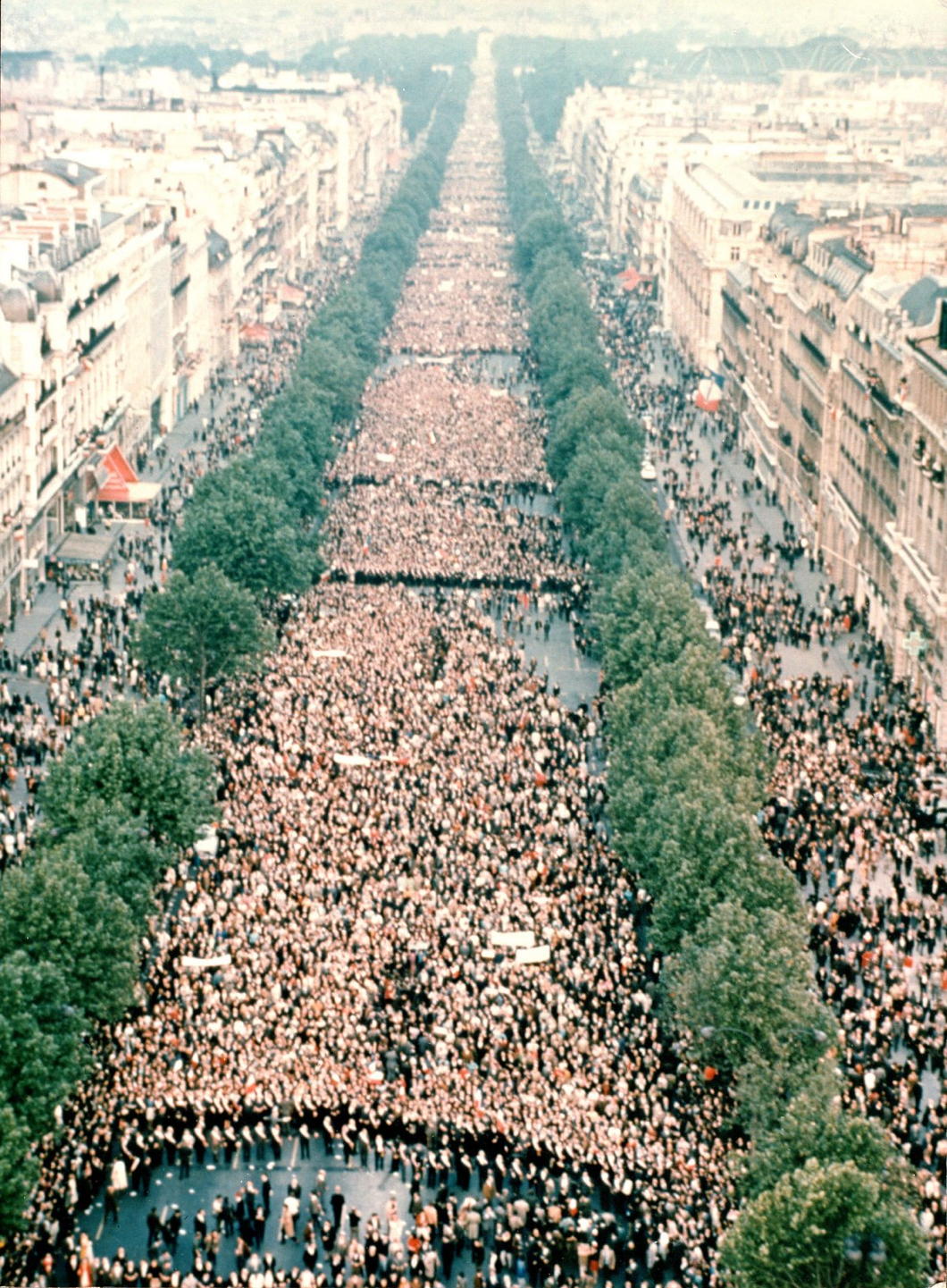2022 May
About Andrew Cusack
 Writer, web designer, etc.; born in New York; educated in Argentina, Scotland, and South Africa; now based in London.
Writer, web designer, etc.; born in New York; educated in Argentina, Scotland, and South Africa; now based in London. read more
News
Blogs
Reviews & Periodicals
Arts & Design
World
France
Mitteleuropa
Knickerbockers
Argentina
The Levant
Africa
Cape of Good Hope
Netherlands
Scandinavia
Québec
India
Muscovy
Germany
Academica
30 mai 1968
The events of May 1968 have been fetishised by the romantic radical left but ended in the triumph of the popular democratic right. Battered by two world wars, France had enjoyed an unprecedented rise in living standards since 1945 — especially among the poorest and most hard-working — and a new generation untouched by the horrors of war and occupation had risen to adulthood (in age if not in maturity). The ranks of the middle class swelled as more and more people enjoyed the material benefits of an increasingly consumerised society, while those left behind shared the same aspirations of moving on up.
Like any decadent bourgeois cause, the spark of the May events was neither high principle nor addressing deep injustice but rather more base impulses: male university students at Nanterre were upset they were restricted from visiting female dormitories (and that female students were restricted from visiting theirs). The ensuing events involved utopian manifestos, barricades in the streets, workers taking over their factories, a day-long general strike and several longer walkouts across the country.
The French love nothing more than a good scrap, especially when it’s their fellow Frenchmen they’re fighting against. Working-class police beat up middle-class radicals but for much of the month both sides made sure to finish in time for participants on either side to make it home before the Métro shut for the evening. But workers’ strikes meant everyday life was being disrupted, not just the studies of university students. When concessions from Prime Minister Georges Pompidou failed to calm the situation there were fears that the far-left might attempt a violent overthrow of the state.
De Gaulle himself, having left most affairs in Pompidou’s hands, finally came down from his parnassian heights to take charge but then suddenly disappeared: the government was unaware of the head of state’s location for several tense hours.
It turned out the General had flown to the French army in Germany, ostensibly to seek reassurance that it would back the Fifth Republic if called upon to defend the constitution. De Gaulle is said to have greeted General Massu, commander of the French forces in West Germany, “So, Massu — still an asshole?” “Oui, mon général,” Massu replied. “Still an asshole, still a Gaullist.”
The morning of 30 May 1968, the unions led hundreds of thousands of workers through the streets of Paris chanting “Adieu, de Gaulle!” The police kept calm, but the capital was tense and there was a sense that things were getting out of hand. Pompidou convinced de Gaulle the Republic needed to assert itself.
Threatened by a radicalised minority, de Gaulle called upon the confidence of the ordinary people of France. At 4:30 he spoke on the radio briefly, announcing that he was calling for fresh elections to parliament and asserting he was staying put and that “the Republic will not abdicate”.
Before the General even spoke some his supporters (organised by the ever-capable Jacques Foccart) were already on the avenues but the short four-minute broadcast inspired teeming masses onto the streets of central Paris, marching down the Champs-Élysées in support of de Gaulle.
Search
Instagram: @andcusack
Click here for my Instagram photos.Most Recent Posts
- Silver Jubilee November 21, 2024
- Articles of Note: 11 November 2024 November 11, 2024
- Why do you read? November 5, 2024
- India November 4, 2024
- The Lithe Efficiency of the Old Constitution November 4, 2024
Most Recent Comments
Book Wishlist
Monthly Archives
Categories



